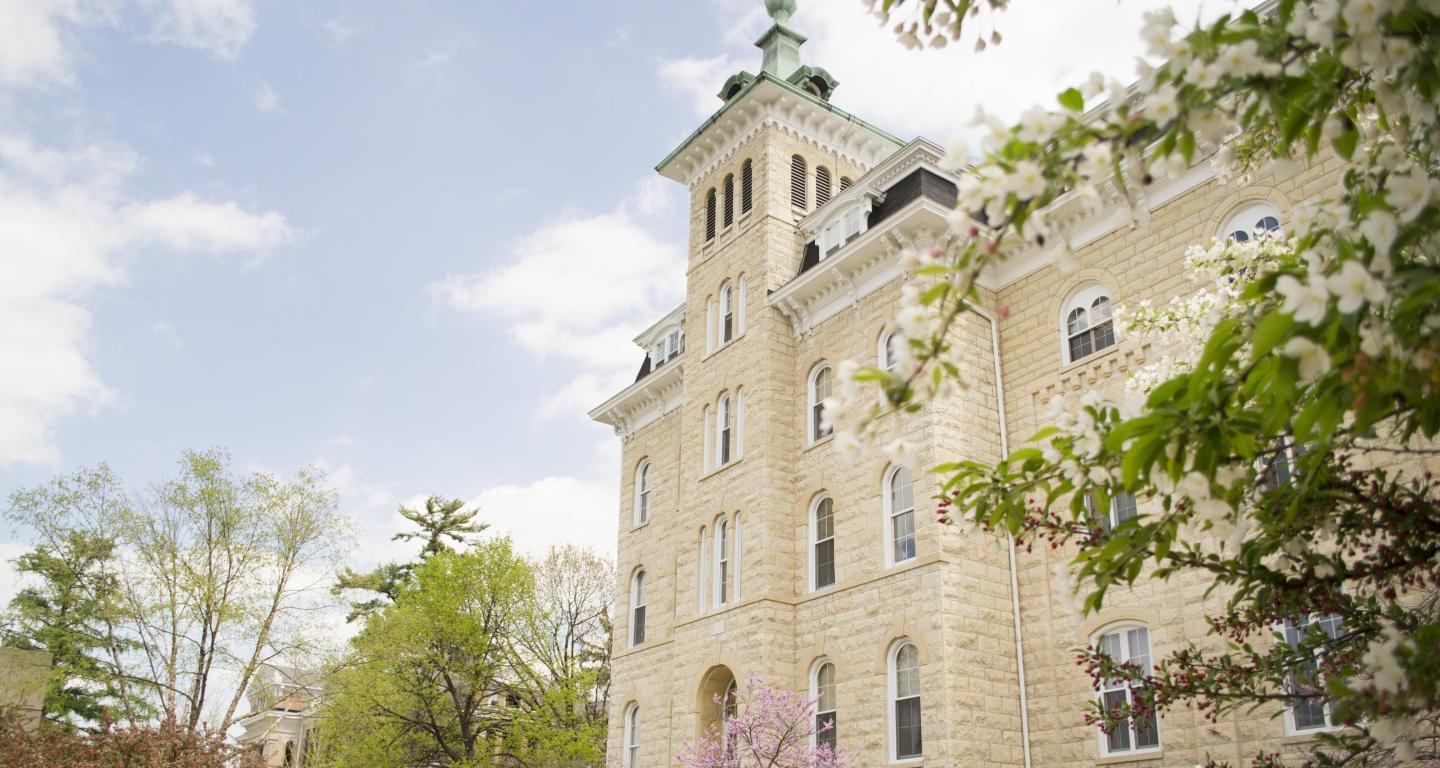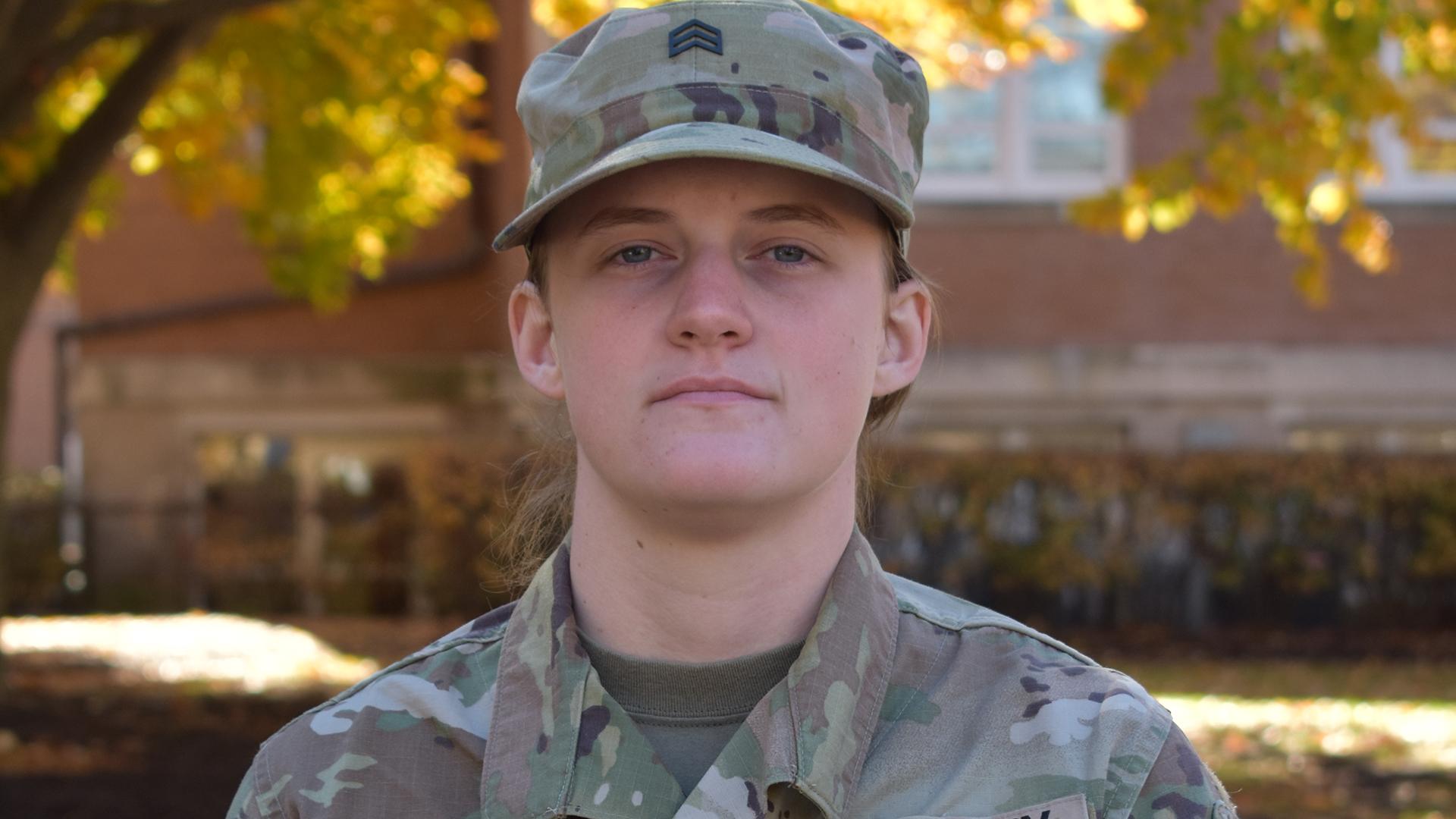
Criminology
Why pursue a criminology degree at North Central College?
Criminology is the study of crime and criminal behaviors. Students majoring in Criminology will learn theories of criminal behavior related to understanding why people commit crime, potential prevention methods, and where and against whom crimes are most frequently committed.
Students will develop an accurate sense of the historical developments of discipline—exploring the evolution of the justice system and lessons society has learned over time.
The program is designed to provide a comprehensive analysis of the complexities of the criminal justice system. Students will assess the impact of legislation, examine the disconnect between research and practice, and evaluate the inequities that permeate the justice system.
IF YOU ARE INTERESTED IN
- Exploring the biological, psychological and social causes of criminal behavior
- Examining the impact of our justice system
- Assessing formal and informal responses to crime
then a degree in Criminology might be for you.
Why study criminology at North Central College?
In the Classroom
Coursework topics:
- Community & City Life
- Community Psychology
- Crime, Law and Society
- Criminal Justice System
- Drugs and Behavior
- Gender: Patterns/Privileges/ Possibilities
- Intersections of Crime
- Law and Order in Cross-Cultural Perspective
- Law, Politics, and Society
- Policing & Corrections
- Power-Based Personal Violence
- Race/Ethnicity: Conflict & Change
- Social Class: Get Ahead/Fall Behind
- Rights, Liberties, and Justice
- Youth Justice, Crime, & Law
Beyond the Classroom
As a criminology major, you can:
- Conduct undergraduate research and present your findings at the College’s Rall Symposium for Undergraduate Research
- Network with industry experts and complete competitive internships
- Join the North Central Criminal Justice Association student organization
- Take your education abroad in one of our many study abroad programs
- Enroll in Chicago Term to experience living in the city while taking courses from North Central professors
Criminology, B.A.
The Bachelor of Arts (B.A.) in Criminology introduces students to theories of criminal behavior, provides an accurate sense of the historical developments of the discipline, and assures that students acquire a comprehensive understanding of the complexities of the criminal justice system while exposing them to current justice, legal and sociological issues. Students will explore both practical and theoretical concerns regarding crime and justice. The program focuses on the scientific research and evaluation processes that generate evidence to support improved practice in the field, to address the underlying structural components of crime and criminality and to bolster the criminal justice process. Students can enhance their studies with an additional major or minor; a study abroad or Chicago term; and/or an internship. Graduates can pursue professional opportunities and careers in social services, law and courts, corrections, juvenile justice, policing, intelligence and the private sector; and will also be competitive for graduate study.
A minimum of 38 credit hours to include:
Core Courses
-
CRIM 100 - Introduction to Criminology
CRIM 100 - Introduction to Criminology
-
CRIM 300 - Intersections of Crime
CRIM 300 - Intersections of Crime
-
SOCI 200 - Social Inquiry I: Quantitative
SOCI 200 - Social Inquiry I: Quantitative
-
SOCI 220 - Crime, Law and Society
SOCI 220 - Crime, Law and Society
-
SOCI 250 - Pathways in Sociology
SOCI 250 - Pathways in Sociology
-
SOCI 340 - Criminal Justice System
SOCI 340 - Criminal Justice System
Elective Courses
A minimum of 12 credit hours from the following with at least eight credit hours at the 300-level or higher:
-
ANTH 352 - Law and Order in Cross-Cultural Perspective
ANTH 352 - Law and Order in Cross-Cultural Perspective
-
CHAS 390 - Special Topics in Chicago Area Studies
CHAS 390 - Special Topics in Chicago Area Studies
-
NEUR 280 - Drugs and Behavior
NEUR 280 - Drugs and Behavior
-
POLS 203 - Law, Politics and Society
POLS 203 - Law, Politics and Society
-
POLS 336 - Rights, Liberties and Justice
POLS 336 - Rights, Liberties and Justice
-
PSYC 330 - Community Psychology
PSYC 330 - Community Psychology
-
SOCI 210 - Gender: Patterns/Privileges/Possibilities
SOCI 210 - Gender: Patterns/Privileges/Possibilities
-
SOCI 211 - Race/Ethnicity: Conflict and Change
SOCI 211 - Race/Ethnicity: Conflict and Change
-
SOCI 212 - Social Class: Get Ahead/Fall Behind
SOCI 212 - Social Class: Get Ahead/Fall Behind
-
SOCI 221 - Youth Justice, Crime and Law
SOCI 221 - Youth Justice, Crime and Law
-
SOCI 222 - Power-Based Personal Violence
SOCI 222 - Power-Based Personal Violence
-
SOCI 223 - Community and City Life
SOCI 223 - Community and City Life
-
SOCI 295 - Research Practicum
SOCI 295 - Research Practicum
-
SOCI 299 - Independent Study
SOCI 299 - Independent Study
-
SOCI 300 - Social Inquiry II: Qualitative
SOCI 300 - Social Inquiry II: Qualitative
-
SOCI 330 - Policing and Corrections
SOCI 330 - Policing and Corrections
-
SOCI 390 - Special Topics in Sociology
SOCI 390 - Special Topics in Sociology
-
SOCI 399 - Independent Study
SOCI 399 - Independent Study
Capstone
Four credit hours from one of the following:
-
CRIM 497 - Criminology Internship
CRIM 497 - Criminology Internship
-
CRIM 496 - Criminology Senior Thesis I
CRIM 496 - Criminology Senior Thesis I
Students must demonstrate elementary competence in a foreign language. For more information, see the
Criminology Minor
Students minoring in criminology take a range of courses that explore the social, political and economic influences that shape crime and punishment. The minor in Criminology provides a foundation for students seeking to supplement their major area of study.
A minimum of 20 credits, including:
Core Courses
-
CRIM 100 - Introduction to Criminology
CRIM 100 - Introduction to Criminology
-
CRIM 300 - Intersections of Crime
CRIM 300 - Intersections of Crime
Electives
Eight credit hours, with at least four credit hours at the 300-level or above. Four credits may be taken in disciplines outside of SOCI/CRIM/ANTH.
-
ANTH 352 - Law and Order in Cross-Cultural Perspective
ANTH 352 - Law and Order in Cross-Cultural Perspective
-
CRIM 497 - Criminology Internship
CRIM 497 - Criminology Internship
-
NEUR 280 - Drugs and Behavior
NEUR 280 - Drugs and Behavior
-
POLS 203 - Law, Politics and Society
POLS 203 - Law, Politics and Society
-
POLS 336 - Rights, Liberties and Justice
POLS 336 - Rights, Liberties and Justice
-
PSYC 330 - Community Psychology
PSYC 330 - Community Psychology
-
SOCI 210 - Gender: Patterns/Privileges/Possibilities
SOCI 210 - Gender: Patterns/Privileges/Possibilities
-
SOCI 211 - Race/Ethnicity: Conflict and Change
SOCI 211 - Race/Ethnicity: Conflict and Change
-
SOCI 212 - Social Class: Get Ahead/Fall Behind
SOCI 212 - Social Class: Get Ahead/Fall Behind
-
SOCI 220 - Crime, Law and Society
SOCI 220 - Crime, Law and Society
-
SOCI 221 - Youth Justice, Crime and Law
SOCI 221 - Youth Justice, Crime and Law
-
SOCI 222 - Power-Based Personal Violence
SOCI 222 - Power-Based Personal Violence
-
SOCI 223 - Community and City Life
SOCI 223 - Community and City Life
-
SOCI 295 - Research Practicum
SOCI 295 - Research Practicum
-
SOCI 299 - Independent Study
SOCI 299 - Independent Study
-
SOCI 330 - Policing and Corrections
SOCI 330 - Policing and Corrections
-
SOCI 340 - Criminal Justice System
SOCI 340 - Criminal Justice System
-
SOCI 390 - Special Topics in Sociology
SOCI 390 - Special Topics in Sociology
-
SOCI 399 - Independent Study
SOCI 399 - Independent Study
Graduates work in a number of industries, including:
- Social Services
- Courts
- Policing
- Institutional Corrections
- Community Corrections
- Juvenile Justice
- Intelligence
- Private Sector
- Legislative Offices
- Law Offices
- Students are also well-prepared for law school and graduate school
Invest in your future
Choosing the right college is a big decision. Don’t make it alone. North Central’s admission and financial aid team is here to help you design a financial aid solution that works best for you and your family.
Merit scholarships, grants, loans, campus employment - these are just some of the resources available to you. Over 95 percent of students and 100 percent of all eligible students receive aid. Let our team partner with you in finding the best value for your education.
Learn more about financial aid and costs for North Central College
Apply to North Central College
The first step to becoming a North Central student is reading the application instructions specific to you. Find out everything you need to know about applying by selecting the group you belong to below.
Criminology Student Profile
Dakota Drew '24
Meet Dakota Drew, a first-generation student at North Central College. Coming from San Antonio, Texas, she's not just pursuing a degree in criminology and sociology but also breaking barriers by participating in ROTC and women's wrestling. Awarded a three-year Army ROTC Scholarship in 2022, covering tuition and fees, Drew thrives in both realms. In her second year on the wrestling team, she took second place in her weight class at the CCIW Championships and earned a spot on the Academic All-CCIW Team. Discover how her military training enhances her leadership and critical thinking skills.

